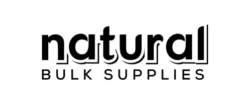Clay Masks in Skincare Formulations | Natural Bulk Supplies
Posted by Natural Bulk Supplies on on Sep 24th 2025
Clay Masks Explained: Choosing the Right Clay for Each Skin Type
Introduction
Clays have been incorporated into skincare formulations for centuries due to their natural absorbency, mineral content, and ability to refine the skin’s appearance. In modern cosmetic science, clays are valued not only for their cleansing and mattifying effects but also for their diverse applications in masks, cleansers, and scrubs. For formulators and brand developers, choosing the right clay for a given skin type is essential to achieving performance, stability, and consumer satisfaction.
This article provides a technical overview of cosmetic clays, their mineral composition, and formulation guidance, with a focus on aligning clay selection with specific skin types.
The Science of Cosmetic Clays
Clays are naturally occurring hydrated aluminum silicates with layered structures that provide: -
- Adsorption and Absorption: Binding and trapping of oils, impurities, and toxins on the skin’s surface.
- Cation Exchange Capacity (CEC): The ability to exchange minerals with the skin surface, influencing detoxifying effects.
- Texture and Rheology Control: Contribution to viscosity and thixotropy in emulsions and suspensions.
Key Types of Cosmetic Clays and Skin Type Matching
1. Kaolin Clay (INCI: Kaolin)
- Composition: Primarily aluminum silicate; available in white, yellow, pink, and red grades depending on mineral content.
- Properties: Mild, fine particle size, low absorbency.
- Best For: Sensitive and dry skin types. White kaolin is ideal for gentle cleansing masks.
- Formulation Use: Common in cream masks, cleansers, and powders at 10–40%.
2. Bentonite Clay (INCI: Bentonite)
- Composition: Rich in montmorillonite, high swelling capacity.
- Properties: Strong absorbent, high CEC, forms gels with water.
- Best For: Oily and acne-prone skin formulations (without therapeutic claims).
- Formulation Use: Ideal for deep-cleansing masks and scrubs at 5–20%. Requires hydration and dispersion under high shear.
3. French Green Clay (INCI: Illite, Montmorillonite)
- Composition: High mineral content including iron oxides and decomposed plant matter.
- Properties: Strong absorbency, natural green color.
- Best For: Combination to oily skin. Adds natural color and detoxifying properties to masks.
- Formulation Use: Masks and scrubs at 5–15%. May impact product color.
4. Rhassoul Clay (INCI: Moroccan Lava Clay)
- Composition: Magnesium-rich silicate clay from Morocco.
- Properties: Balanced absorbency, improves smoothness.
- Best For: Normal to combination skin, haircare formulations.
- Formulation Use: Widely used in spa formulations, masks, and hair packs at 10–30%.
5. Fuller’s Earth (INCI: Solum Fullonum)
- Composition: Aluminum magnesium silicate.
- Properties: Strong oil-absorbing capacity, natural bleaching effect.
- Best For: Oily skin; not recommended for sensitive types.
- Formulation Use: Deep-cleansing masks and exfoliating scrubs at 5–15%.
Applications in Cosmetic Formulations
Masks
- Primary application of clays; provide deep cleansing, mattifying, and refining skin feel.
- Typical use levels: 15–40% in rinse-off masks.
Cleansers
- Incorporated into cream or gel cleansers for added absorbency.
- Typical use levels: 3–10%.
Exfoliating Products
- Used with natural exfoliants (oat, pumice) to enhance skin refinement.
- Typical use levels: 5–15%.
Haircare
- Rhassoul and bentonite improve scalp oil balance and hair softness in masks and shampoos.
Formulation Insights
Dispersion and Processing
- Pre-disperse clays in glycerin, propylene glycol, or water to minimize lumping.
- Bentonite requires high-shear mixing and time to fully swell.
Compatibility
- Avoid high percentages of clays in emulsions with delicate esters; risk of instability.
- Stabilize with gums (xanthan, guar) or synthetic thickeners if necessary.
Shelf Life and Storage
- Use preservatives in water-based clay dispersions to prevent microbial growth.
- Store powders in airtight, moisture-free conditions to avoid premature hydration.
Common Mistakes
- Using bentonite at excessive levels, leading to cracking masks.
- Ignoring pH shifts caused by certain clays, which may destabilize emulsions.
Sustainability & Sourcing Considerations
- Origin Matters: Clays sourced from different regions can vary significantly in mineral composition.
- Processing: Cosmetic-grade clays are purified, micronized, and standardized for consistency.
- Sustainability: Partner with suppliers practicing responsible mining and soil conservation.
Why Buy from Natural Bulk Supplies
Natural Bulk Supplies offers high-quality cosmetic clays in bulk for professional skincare and personal care formulations. We provide consistent particle sizing, purity, and reliable supply—ensuring your formulations meet both performance and compliance standards.
- Wide selection: Kaolin, Bentonite, French Green, Rhassoul, Fuller’s Earth.
- Available in bulk packaging for R&D and production.
- Tested for quality and performance consistency.
Shop Cosmetic Clays for Skincare Formulations
Conclusion
Clay masks remain one of the most effective and natural approaches to refining skin appearance. By understanding the mineral properties and selecting the appropriate clay for each skin type, formulators can create products that balance performance with consumer expectations. Natural Bulk Supplies supports formulators with reliable bulk sourcing, ensuring high-quality clays that perform consistently across applications.
External References
- CIR (Cosmetic Ingredient Review) Safety Reports on Kaolin and Bentonite.
- PubMed ID: 17017849 – Mineral clays in dermatological and cosmetic applications.
- Cosmetics & Toiletries – The Role of Minerals in Cosmetic Formulations (2017).
